Abstract
Sources and levels of stress, as well as coping mechanisms, perceived by residents in both years of a two-year family practice residency program in Toronto are described. In addition, differences between first- and second-year residents, and between women and men residents, regardless of year, are examined. Results of the survey indicate that the levels of stress are relatively high throughout the two years of residency training. The three most stressful aspects of being a resident are time pressures, fatigue, and lack of self-confidence. Female residents appear to report a higher level of stress than males, especially in trying to combine a personal and a professional life. Specific coping mechanisms include talking to others, adjusting attitudes and feelings, or strategic use of time. Recommendations aimed at helping family medicine residency programs deal with the problem of stress in residents are suggested. A current major province-wide research study including all interns and residents in Ontario is described.
Keywords: Family practice, residents, stress
Full text
PDF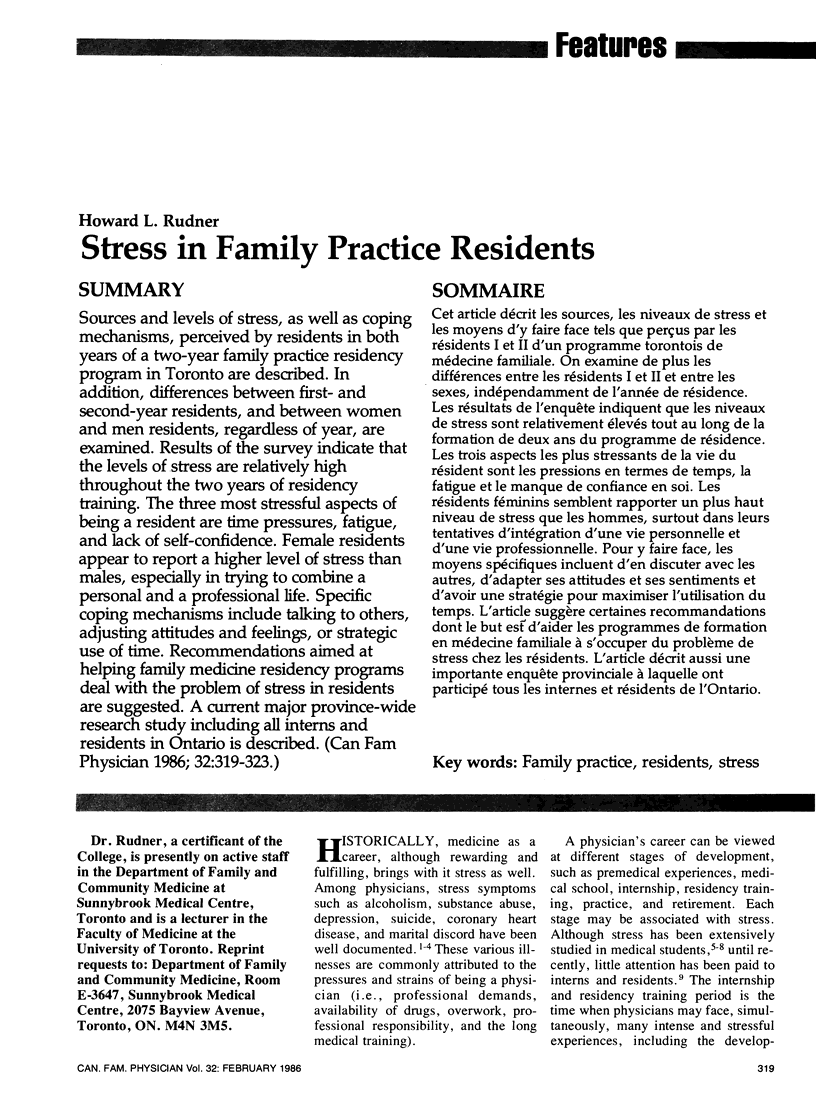
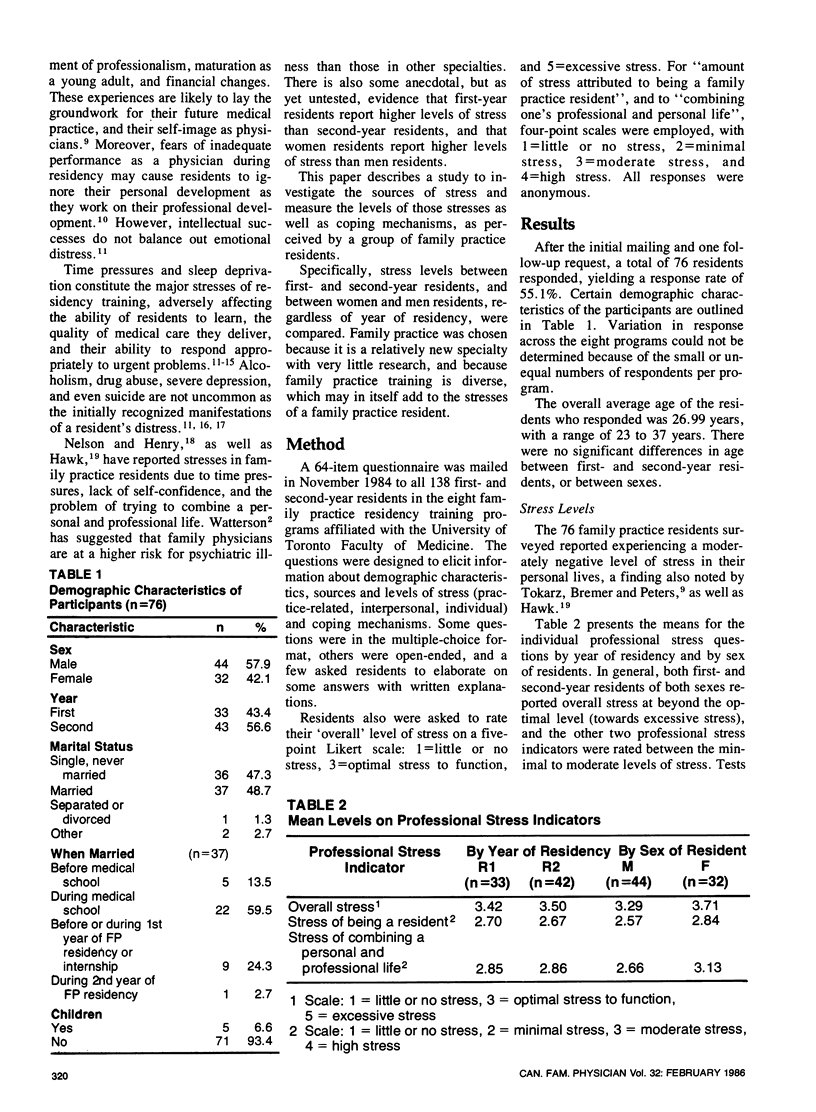
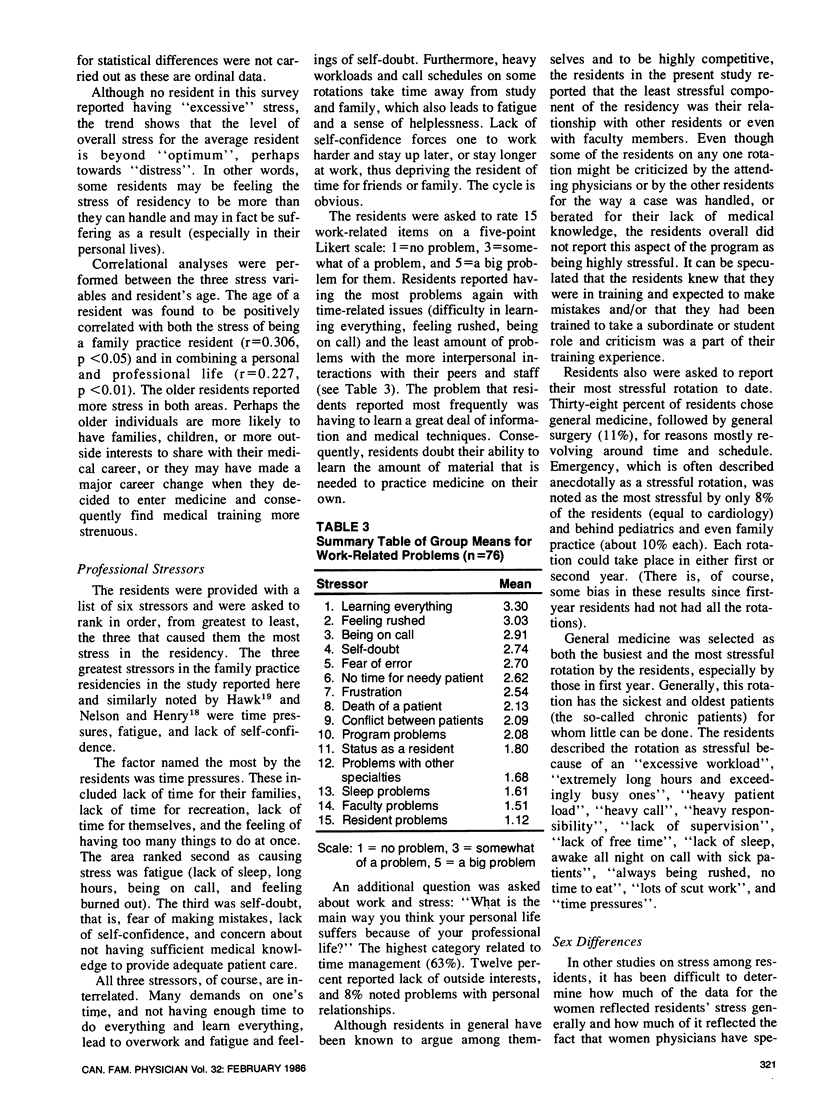
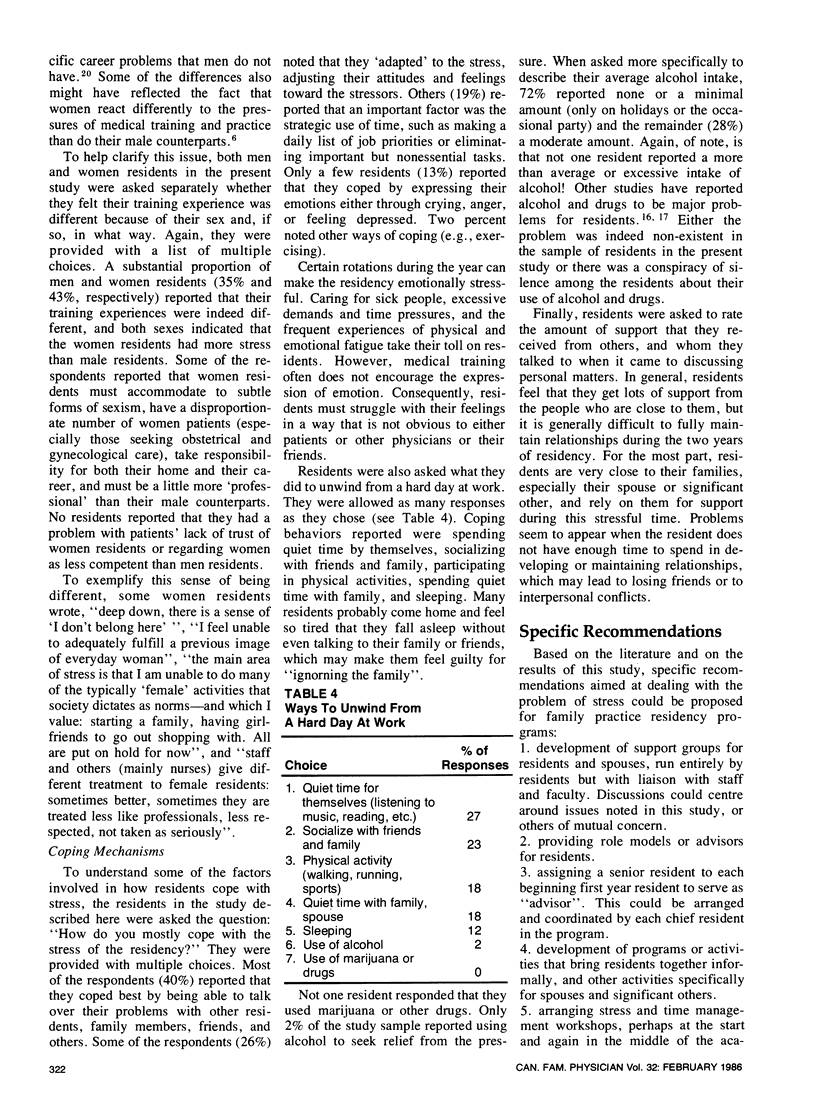
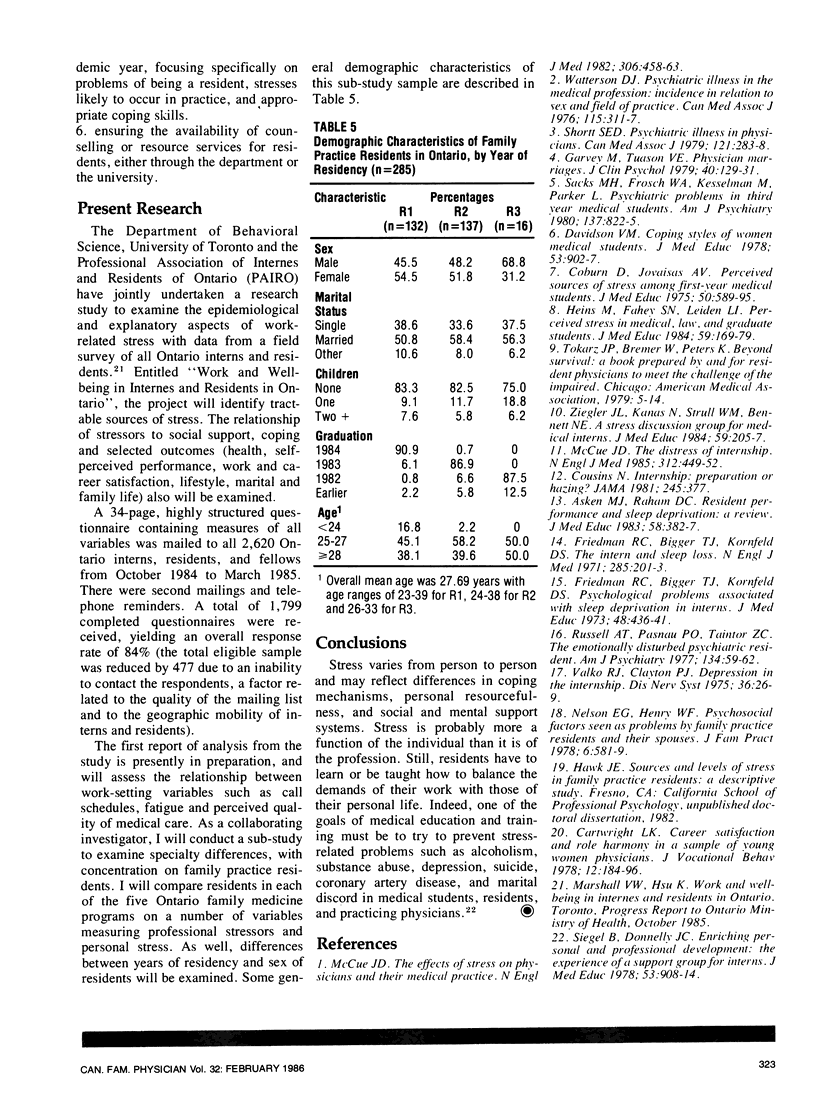
Selected References
These references are in PubMed. This may not be the complete list of references from this article.
- Asken M. J., Raham D. C. Resident performance and sleep deprivation: a review. J Med Educ. 1983 May;58(5):382–388. doi: 10.1097/00001888-198305000-00003. [DOI] [PubMed] [Google Scholar]
- Cousins N. Internship: preparation or hazing ? JAMA. 1981 Jan 23;245(4):377–377. [PubMed] [Google Scholar]
- Friedman R. C., Bigger J. T., Kornfeld D. S. The intern and sleep loss. N Engl J Med. 1971 Jul 22;285(4):201–203. doi: 10.1056/NEJM197107222850405. [DOI] [PubMed] [Google Scholar]
- Friedman R. C., Kornfeld D. S., Bigger T. J. Psychological problems associated with sleep deprivation in interns. J Med Educ. 1973 May;48(5):436–441. doi: 10.1097/00001888-197305000-00004. [DOI] [PubMed] [Google Scholar]
- McCue J. D. The distress of internship. Causes and prevention. N Engl J Med. 1985 Feb 14;312(7):449–452. doi: 10.1056/NEJM198502143120725. [DOI] [PubMed] [Google Scholar]
- McCue J. D. The effects of stress on physicians and their medical practice. N Engl J Med. 1982 Feb 25;306(8):458–463. doi: 10.1056/NEJM198202253060805. [DOI] [PubMed] [Google Scholar]
- Russell A. T., Pasnau R. O., Taintor Z. C. The emotionally disturbed psychiatric resident. Am J Psychiatry. 1977 Jan;134(1):59–62. doi: 10.1176/ajp.134.1.59. [DOI] [PubMed] [Google Scholar]
- Shortt S. E. Psychiatric illness in physicians. Can Med Assoc J. 1979 Aug 4;121(3):283–288. [PMC free article] [PubMed] [Google Scholar]
- Siegel B., Donnelly J. C. Enriching personal and professional development: the experience of a support group for interns. J Med Educ. 1978 Nov;53(11):908–914. [PubMed] [Google Scholar]
- Valko R. J., Clayton P. J. Depression in the internship. Dis Nerv Syst. 1975 Jan;36(1):26–29. [PubMed] [Google Scholar]
- Watterson D. J. Psychiatric illness in the medical profession: incidence in relation to sex and field of practice. Can Med Assoc J. 1976 Aug 21;115(4):311–317. [PMC free article] [PubMed] [Google Scholar]


